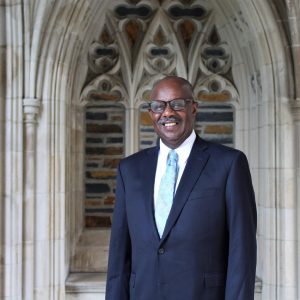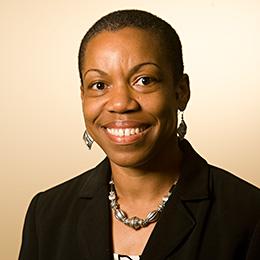Overview
Since the completion of the Human Genome Project in 2003, it has become conventional wisdom for most scientists that “race” in humans is an illusion. That is, this thing called race cannot be biologically defined based on genetic variation among individuals and populations, and there is virtually no genetic rationale for grouping humans into fundamentally different groups according to their physical traits. Nonetheless, consensus that conceptions of race fixed in biology are a myth does not mean the effects of racial classifications are not real and consequential. For example, some of us experience mistreatments on account of our assigned race and must contend with traditions and economic and social policies that reinforce race-based inequalities, while for others of us, our assigned race yields certain advantages and rewards.
This university course will provide foundational knowledge about and explore the origins and meanings of the concept of race. It will examine the evolution, pervasiveness, and consequences of racial classifications and racial hierarchies in the U.S. and around the world. The course will also introduce students to the concept that race is linked to all disciplines and will highlight scholarship and scholars from across Duke. Weekly opportunities for reflection and discussion will be woven into the course, with teaching students how to constructively engage in potentially difficult conversations as an express goal.
Co-Conveners
The four co-conveners are all part of the University Course on Race Committee and are responsible for implementation of the course and its topics, structure, and learning outcomes. In addition, there are 14 guest lecturers from within and outside Duke University who will lead weekly lectures on a variety of topics related to the study of race.

Kerry L. Haynie, Ph.D.
Professor and Chair, Department of Political Science; Professor Department of African and African American Studies; Director of the Center for the Study of Race, Ethnicity, and Gender in the Social Sciences, Duke University

Aimee Kwon, Ph.D.
Associate Professor of Asian and Middle Eastern Studies, Program in Gender, Sexuality and Feminist Studies, Program in Cinematic Arts, Founding Director of Duke’s Asian American & Diaspora Studies Program, and Andrew Mellon Games & Culture Humanities Lab, Duke University

Charmaine DM Royal, Ph.D.
Robert O. Keohane Professor of African & African American Studies, Biology, Global Health, Family Medicine & Community Health, and Director of the Center on Genomics, Race, Identity, Difference and the Center for Truth, Racial Healing & Transformation

Donald H. Taylor Jr., Ph.D.
Professor in the Sanford School of Public Policy, Family Medicine and Community Health, the School of Nursing. He is Director of the Social Science Research Institute and a founding faculty member of the Duke-Margolis Center for Health Policy, Duke University
Outline
Aug 24
Introduction and Overview + What is Race?
This session provides an overview of historical and contemporary understandings of human biological variation and its connections to race. Drawing on fields such as evolutionary biology and population genetics, it utilizes a comparative and global approach to examine the concept of ‘race’ in humans and other organisms. The session explores both the emergence of and retreat from ideologies about the existence of biological race and racial hierarchies in humans.
Kerry Haynie, Ph.D.
Associate Professor of Political Science, African & African American Studies, and Director of the Center for the Study of Race, Ethnicity, and Gender in the Social Sciences, Duke University
Charmaine DM Royal, Ph.D.
Professor of African & African American Studies, Biology, Global Health, Family Medicine & Community Health, and Director of the Center on Genomics, Race, Identity, Difference and the Center for Truth, Racial Healing & Transformation
Aug 31
Freedom, Liberty, and Just Us: Anthropology and the Science of the “Civilized”
This session focuses on race as a social construct and how that construct has changed, morphed, and adapted to perpetuate white supremacy. The discipline of anthropology played a crucial role in constructing racial hierarchies and “defining” who was savage, barbarian, or civilized. This hierarchy justified blatant discrimination and institutionalized racism such as Indian removal, slavery, and Chinese exclusion within a nation founded on the pillars of democracy – freedom, justice, equality, and liberty. The session will cover the critiques of biological notions of race and help explain the persistence and power of race as a worldview.
Lee Baker, Ph.D.
Mrs. A. Hehmeyer Professor of Cultural Anthropology, African & African-American Studies, and Sociology, Duke University
Sept 7
The Sweet Enchantment of Color-Blindness in Contemporary America
Despite the recent rise in overt expressions, actions, and commentary reminiscent of the
Jim Crow era, racial domination since the 1970s has been accomplished mainly through
practices and mechanisms that are seemingly nonracial. This color-blind racism ideology uses ideas associated with classical liberalism to account for racial inequality and avoids traditional racialized language and tropes, hence, it helps maintain racial domination without much fanfare. In this lecture, Professor Bonilla-Silva will discuss its main components (i.e., its frames, style, and racial stories) and explain how each works to minimize the centrality of racism as a factor explaining the state of racial affairs.
Eduardo Bonilla-Silva, Ph.D.
James B. Duke Distinguished Professor of Sociology, Duke University
Sept 14
Immigrant Whiteness: A Brief History of U.S. Immigration Policy and Race
In “Immigrant Whiteness” Professor Gunther Peck provides an overview of the rich and contradictory ways that U.S. immigration law has both structured and been transformed by perceived hierarchies of race and political power across U.S. history. Beginning with a brief analysis of the 1790 naturalization law, the lecture examines the dilemmas that “new” immigrants to the United States have navigated in securing rights and accommodating white racial hierarchy. Peck demonstrates how and why immigrant whiteness has never been authored by skin color but instead by political “facts,” such as anti-black racism, insecure voting rights for citizens, and a need for selective inclusion into the exclusive spaces of elite economic and political authority in the United States. As such, immigrant whiteness provides a rich window into how white supremacy, so-called, has historically worked and been challenged and resisted.
Gunther Peck, Ph.D.
Associate Professor of History, Director of the Hart Leadership Program, and Associate Professor in the Sanford School of Public Policy, Duke University
Sept 21
Global and Comparative Perspectives on Race
Race and racism manifest differently across areas and regions of the world and through historical periods. This module explores select cases of variable forms of race and racism around the globe, and asks questions such as the differences and similarities
between race, caste, ethnicity as conceived in variable contexts.
Aimee Kwon, Ph.D.
Associate Professor of Asian and Middle Eastern Studies, Program in Gender, Sexuality and Feminist Studies, Program in Cinematic Arts, Founding Director of Duke’s Asian American & Diaspora Studies Program, and Andrew Mellon Games & Culture Humanities Lab, Duke University
Jessica Namakkal (ICS)
Assistant Professor of the Practice in the International Comparative Studies Program and History, Duke University
Sept 28
Kinship and Race in Native America
Drawing on examples from the 19th and 20th century U.S. South and Midwest, the class will discuss the development of ideas about Native people as members of a racial group, and how their classification as a race is distinct from their status as members of sovereign political communities that predate the existence of the United States.
Malinda Lowery, Ph.D.
Professor of History and Director of the Center for the study of the American South, University of North Carolina, Chapel Hill
Oct 12
Saving the Nation with Racism
This unit examines the propositions that White evangelical Christians have, since the founding of the nation, played a vital role in creating and maintaining deep political and social divisions in the U.S., and that racism is at the core of conservative evangelical activism and power.
Anthea Butler, Ph.D.
Associate Professor of Religious Studies, Africana Studies, and Graduate Chair in the Department of Religious Studies, University of Pennsylvania
Oct 19
Race and the Law: Critical Race Theory
Critical race theory originated in U.S. law schools in the 1970s and 1980s as a critique of the ways in which societal institutions, including law, contribute to racial subordination. This module will provide an overview of critical race theory and will examine the influence of race on substantive law and legal processes in the U.S.
Trina Jones, J.D.
Professor of Law, Duke University School of Law
Oct 26
Racial Attitudes and Beliefs
This unit examines psychological processes related to the formation of racial attitudes, beliefs, identities, and prejudices, and the consequences these have for inter-group relations, racial conflict, and political decision-making. We will examine how racial attitudes are typically measured and whether these measures can help us to assess racial “progress.”
Candis Watts Smith, Ph.D.
Associate Professor of Political Science
Nov 2
Race and Public Policy
The founding documents of American Democracy belie a tension that remains today. The Declaration of Independence speaks of equality, while Article 1, Section 2, Clause 3 of the U.S. Constitution lays out a specific hierarchy of human value marked by Race with respect to who counted for the purposes of representation and taxation. This tension remains embedded in many aspects of public policy still today, and ever since 1787. This unit will introduce students to the current reality and history of how Race and public policy interact in a variety of policy areas. Part (1) will examine the ways that race disparity has been embedded in and perpetuated through U.S. higher education policy, concluding with consideration of the impact that this has for democratic citizenship. Part (2) will review the health consequences, anticipated and unanticipated, of racially targeted urban policy decision making at the intersection of race/ethnicity, poverty status, sociocultural resources and the physical embodiment of lived social experience.
Jay Pearson, Ph.D.
Assistant Professor in the Sanford School of Public Policy, Assistant Research Professor of Global Health, Faculty Research Scholar of DuPRI’s Population Research Center, and Associate of the Duke Initiative for Science & Society, Duke University
Deondra Rose, Ph.D.
Assistant Professor in the Sanford School of Public Policy, Director of Research in POLIS: Center for Politics, and Assistant Professor of History and Political Science, Duke University
Nov 9
Land Use, Environmental Hazards and Systemic Racial Barriers
African American and Latino communities are more likely to be exposed to environmental hazards, more likely to be excluded from towns and cities, more likely to be denied local political representation and basic services municipalities provide, and more likely to be the targets of government actions aimed to displace non-white residents. We focus first on how local and state governments target African American and Latino communities to bear a higher burden of environmental risks. We then examine how governments use zoning, annexation, and other land-use powers to perpetuate racial segregation, to deny equal public services to African American and Latino communities, and to use zoning and other administrative powers to change the racial composition of towns. Most of the evidence presented is from environmental justice and fair housing litigation over the past fifteen years.
Allan Parnell, Ph.D.
Vice President of Cedar Grove Institute for Sustainable Communities and Senior Fellow at the Kenan Institute, University of North Carolina, Chapel Hill
Nov 16
Race, Medicine, and Health
The sociological model of research that prioritizes the control for membership in various groups has made “controlling for” race in health related research ubiquitous. However, there is often little to no thought put into what scholars are seeking to measure when they include race as a variable in health and medical research. Is it a proxy for Racism? Cultural beliefs? Different preferences? Structural barriers? Biological differences? This session will use the differential mortality from COVID 19 by race to explore these issues.
Tyson Brown, Ph.D.
Associate Professor of Sociology and Director of the Center on Health and Society, Duke University
Nov 23
Race and Popular Culture
Major recent social trends such as #Oscarsowhite and #Metoo have revealed the persistence of homogeneity and racial and gender power dynamics in film and other cultural industries. This persistence has long existed in the stories and characters we have come to accept as the “norm” from content to behind the scenes—of who is valued and given the platform as our storytellers, icons, and content producers. This module explores variable arenas of cultural industries both nationally and internationally, and asks faculty, creatives, critics, industry insiders, why race (and other disparities) still matter. Together, we reflect on past histories as well as current trends, including an unprecedented recent expansion of diversity in some content and platforms, to consider where we are heading.
Esther Kim Lee, Ph.D.
Professor of Theater Studies and the International Comparative Studies Program, Duke University
Mark Anthony Neal, Ph.D.
James B. Duke Distinguished Professor and Chair of African & African American Studies, Professor of English, and Founding Director of the Center for Arts, Digital Culture, and Entrepreneurship (CADCE), Duke University
Nov 30
Conclusions
Course Co-conveners
Events
UNIV 101 hosted a co-curricular speaker series – “UNIV 101 Presents” – during the 2021-2022 academic year. These events were complementary to the course, free of charge, and open to the general public. No Duke affiliation was required to attend.
Race, Policing, and Activism with Jerry Blackwell
- Policing and Race – Monday, September 20th, 6-7:30PM EST
Featuring Jerry Blackwell, member of the prosecution team for the Derek Chauvin trial, and moderated by Duke Law professor H. Timothy Lovelace, Jr. and Trina Jones, Jerome M. Culp Professor of Law and Director of the Center on Law, Race, and Politics
Co-Sponsored by the Duke Center on Law, Race, and Politics in the Duke Law School- Online Webinar
Check out the following article about Race, Policing, and Activism, written by Duke Undergraduate Skylar Hughes!
Religion, Race, and the Future of Democracy in America
- Religion, Race, and the Future of Democracy in America – Tuesday, October 12th, 4:30-6PM EST
A conversation with Anthea Butler, author of “White Evangelical Racism: The Politics of Morality in America” with Frank Stasio, former host of WUNC’s “The State of Things”- Online Webinar
Race and Reparations with William A. Darity Jr. and Kirsten Mullen
- Race and Reparations – Thursday, October 28th, 6-7:30PM EST
Featuring William A. Darity Jr., Samuel DuBois Cook Distinguished Professor of Public Policy and co-author of “From Here to Equality; Reparations for Black Americans in the Twenty-First Century”, and Kirsten Mullen, writer, folklorist, museum consultant, lecturer, and co-author of “From Here to Equality” and moderated by Adriane Lentz-Smith, Associate Professor and Associate Chair of Duke History, and Duncan Williams, Chair of the University of Southern California’s School of Religion, Professor of American Studies & Ethnicity, and the Director of the USC Shinso Ito Center for Japanese Religions and Culture
Co-sponsored by the Duke Human Rights Center @ Franklin Humanities Institute and the Duke Sanford School of Public Policy- Online Webinar
If you want to learn more from Professor Darity and folklorist Mullen on the topic of reparations, you may enjoy the Sanford School of Public Policy’s six-part podcast “The ARC of Justice: From Here to Equality.”
This new season of the award-winning podcast Ways & Means was produced in partnership with Duke Professor William A. “Sandy” Darity Jr. and folklorist A. Kirsten Mullen based on their book From Here to Equality: Reparations for Black Americans in the 21st Century, and includes multiple Duke and Sanford faculty voices, as well as many voices from our community. Over six episodes, the podcast series explores how economic opportunities were different for Black and white Americans throughout history – what could have been different and possibilities that could still be implemented. The Arc of Justice was made possible through support from the Duke Office for Faculty Advancement thanks to funding from The Duke Endowment, with additional support from North Carolina Public Radio.
Listen to the podcast series and download the discussion guides: https://waysandmeansshow.org/2021/02/24/new-season-arc-justice/
- Haqq & Hollywood: 100 Years of Muslim Tropes and How to Transform Them – Thursday, November 18th, 6PM EST
Featuring Dr. Maytha Alhassen, a writer, journalist, professor, and pop culture senior fellow
Co-sponsored by the Duke Islamic Studies Center (DISC), Duke Arts, Center for Muslim Life (CML), Duke Department of Asian and Middle Eastern Studies (AMES), and Duke Asian American Diaspora Studies (AADS)- Online Webinar
